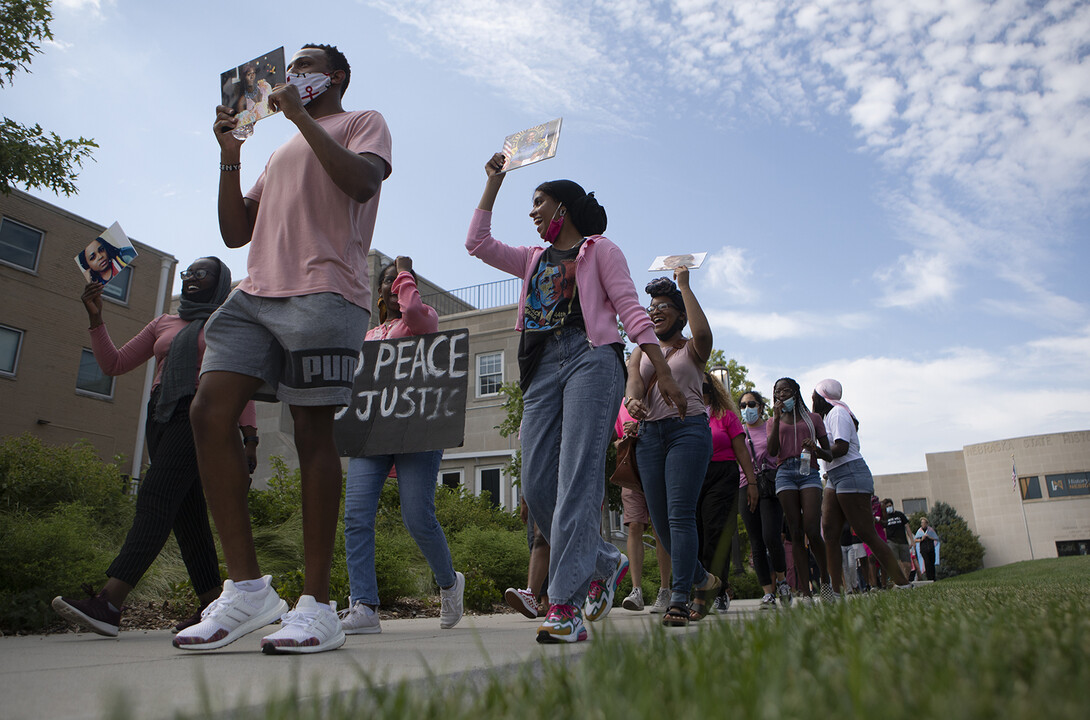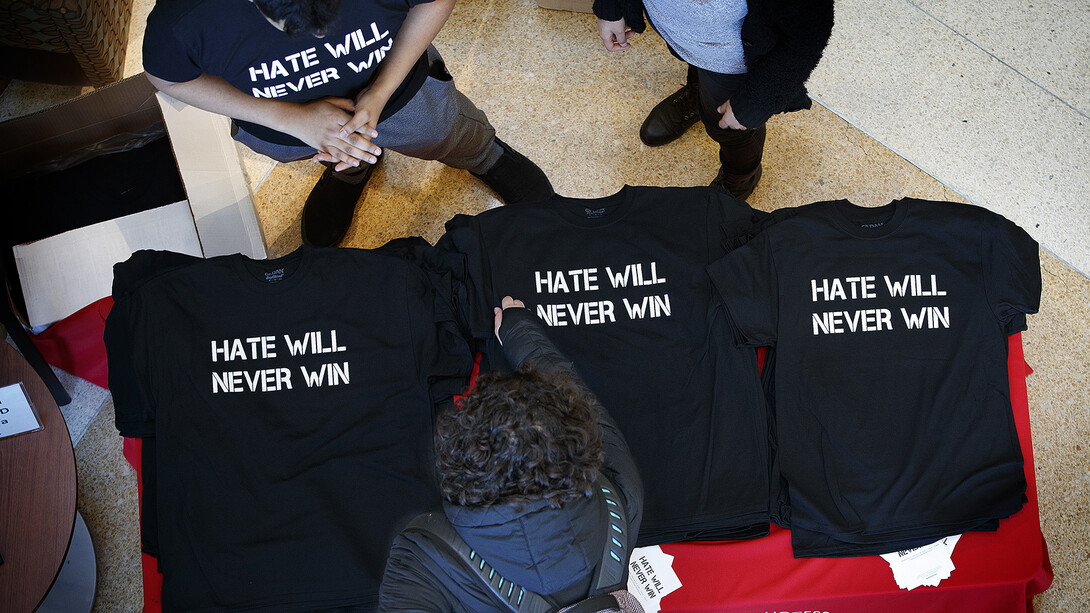
The University of Nebraska–Lincoln is continuing its pursuit of racial justice, following the deaths of George Floyd, Breonna Taylor and others that galvanized calls for the end to systemic racism across the United States.
In a July 7 message to the university community, Chancellor Ronnie Green reaffirmed the university’s commitment to continued work addressing anti-racism and racial equity at the university, and announced the next steps the university will take.
“It is important to see this journey and the work of anti-racism as an on-going process; and more importantly, as a step for us to have greater accountability and a sustained focus as an institution that serves our state and beyond,” Green wrote.
Green called for this journey to begin in a June 5 message to campus, and in the ensuing weeks, he has held conversations with faculty from the Institute for Ethnic Studies and its African and African American Studies Program, the African and African American Leadership Caucus, the Chancellor’s Commission on the Status of People of Color, the Black Student Union and others.
“Our campus leaders have carefully studied the statements and recommendations submitted by departments, faculty, staff, and student organizations from across our university community,” Green said. “These recommendations and conversations were deeply insightful and pointed clearly to the need for this journey to commence for our university.”
The journey is being led by Green with guidance provided by Marco Barker, vice chancellor for diversity and inclusion, and his staff in the Office of Diversity and Inclusion, along with the Council on Inclusive Excellence and Diversity. To assist Barker, university leadership identified five faculty whose “research, creative activity, and engagement explores these topics.” The five faculty members are:
- Lory J. Dance, associate professor of sociology and ethnic studies
- Kwame Dawes, Chancellor’s Professor of English, Glenna Luschei Editor of Prairie Schooner
- Anna W. Shavers, Cline Williams Professor of Citizenship Law and associate dean for diversity and inclusion
- Kara Mitchell Viesca, associate professor of teaching, learning, and teacher education
- Sergio C. Wals, associate professor of political science and ethnic studies
“The faculty leaders will assist me and our university in developing and facilitating opportunities to learn about racism that are available across the university and for our local and extended communities; systematically reviewing and assessing racial disparities across our operations and the necessary practices and policy changes that address such disparities; leveraging the expertise, scholarship, artistry and innovation of our faculty, staff and students to inform local and national conversations on anti-racism and racial equity; and increasing our engagement with academic, professional and statewide communities in an effort to foster an understanding and application of anti-racism and racial equity practices,” Green wrote.

Green also laid out initial action steps that will be taken by university leadership:
- Examine how our current core curriculum addresses diversity with a keen focus on race, privilege, and power.
- Develop a clearer and more transparent process for addressing climate issues that may impede an individual’s participation in our UNL community based on their identity.
- Establish co-director faculty leadership roles in the Office of Diversity and Inclusion to work with the Office of Academic Affairs and academic colleges on faculty diversity recruitment, retention, and development. This will work in concert with staff recruitment and retention efforts.
- As suggested by those who participated in our CEO Action sessions, initiate a culture of self-reflection and learning through a Chancellor’s reading program focused on race and identity each academic semester, beginning with the upcoming fall 2020 term.
- Commit to studying and addressing systemic issues and institutional policies. This will include developing a process to review the honorific naming of buildings and structures on our campus, as well as our approaches to community policing and UNLPD relationships as committed to by Interim University Police Chief Hassan Ramzah.
- Hold our University leadership team at the Chancellor’s Cabinet and Expanded Deans Council level accountable for developing anti-racist and inclusive excellence strategies.
“These actions are the first steps of what I anticipate as multiple steps in addressing racial equity in our institution and the many concerns expressed by members of our campus community,” Green said. “We have more work to do, and are committed to that work. The Office of Diversity and Inclusion will support me in monitoring and tracking our progress with these and future efforts.”
Green said the journey for anti-racism and racial equity strengthens the ability to fulfill the N2025 Strategic Plan, which emphasizes inclusive excellence, that “Every person and every interaction matters.”
“It positions our institution to better recognize and address structural barriers stemming from systemic racism; facilitate deeper self-reflection, dialogue and learning; and fulfill our mission to serve as the state’s intellectual center,” Green said. “I challenge all of us to commit to and join in this journey as we build a stronger and better future for all. We can only make meaningful and sustained change by all of us working together.”














